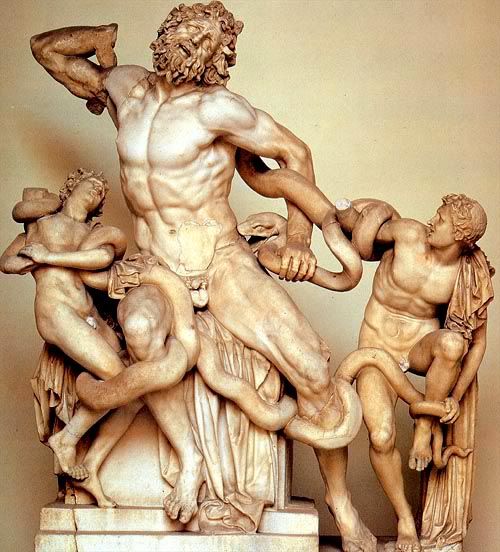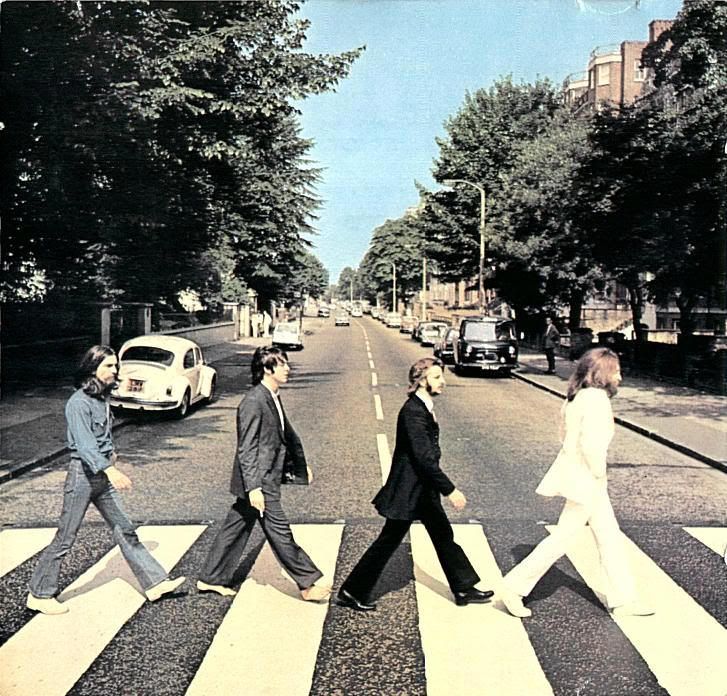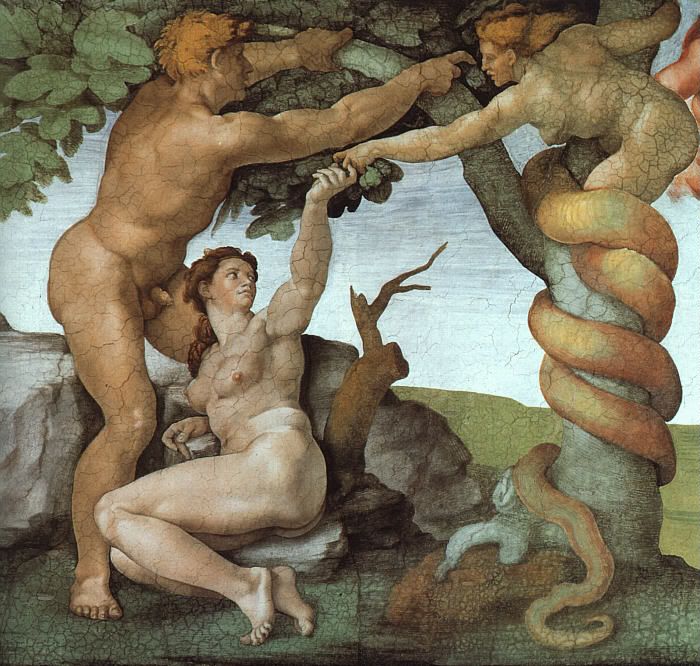
Plato's character of Euthyphro does not receive much praise from scholars. I have seen him variously referred to as an "idiot", as "stupid" and as a "fool". Even Socrates' prosecutors, Anytus, Meletus and Lycon, do not usually receive such contempt. The assumption is that this prophet is being presented as a bumbling idiot by Plato and that any praise that Socrates gives him is purely ironic. This is seen as evidence of Platonic and Socratic contempt for religious inspiration. However, I would suggest that this interpretation is evidence for modern contempt for religious inspiration, not Platonic or Socratic contempt. Rather, the reference to Euthyphro in
Cratylus 396d as the "great Euthyphro" and Socrates' request that Euthyphro become his teacher
Euthyphro 5c are at least semi-serious. Nothing that Euthyphro does in the epynomous diologue portrays Euthyphro as a fool. Instead, Euthyphro is one of Socrates' most clever interlocutors, understanding Socrates' objections and correcting his own definitions intelligently. In the essay, I will go through the four definitions of
hosiotes or "holiness" (usually translated as "piety") that Euthyphro provides and how each of his definitions is a natural clarification of his position.
The first definition of "holiness" that Euthyphro provides is "what I am doing", referring to his prosecution of his own father for murder. He believes this prosecution for murder is necessary, as murder incurs significant religious pollution (take, for instance, the plague in
Oedipus Tyrannus). This is usually cited as evidence of Euthyphro's dimness, as an example is a spectacularly bad definition. However, three things must be said in Euthyphro's defence. First, Socrates' question is ambiguous in Greek. He asks what
to hosion is, which is a neuter substantive use of the adjective
hosios or "holy". This could mean "holiness", but could also mean "the holy thing". Second, given that the topic of discussion has been largely why Euthyphro is prosecuting his own father, interpreting the question to mean what is the holy thing to do
in this instance is not only a possible but even the likely way of interpreting Socrates' question. Third, pointing to an instance when asked for a definition is not necessarily a sign of foolishness. If, for example, someone were to ask me what a cat is, and I happened to have a cat handy, I'd likely simply pick up the cat and say "this is a cat". If the person were then to clarify and ask for the Linnean classification, I would clarify, but that would not make a fool for first having grabbed an available feline.
Euthyphro's second and third definitions of "holiness" are "what is loved by the gods" and then "what is loved by all the gods". The clarification is required because polytheism includes gods who disagree with each other, at times violently (for example, the entire
Iliad). Euthyphro quickly makes this clarification when challenged, but his use of the phrase is not a sign a stupidity. If a leader were to say his or her job was to "benefit the citizens", one would rightly point out that citizen's interests are often in conflict, so a clarification to "benefit most of the citizens" would not be a sign of a weak mind, but rather one who is willing to clarify the fuzziness of ordinary speech.
Euthyphro's third definition, that holiness is "what is loved by all the gods" is challenged with an argument from
Euthyphro 10a-d that something holy "is not being loved by those who love it because it is something loved, but it is something loved because it is being loved by them". It includes a long argument about how things are being carried because someone is carrying them and they someone is not carrying them because they are being carried. I challenge anyone to follow this argument on a first pass. This argument is the toughest argument in the
Euthyphro and Euthyphro follows it through without blinking. Aside from the keen intelligence Euthyphro shows in following Socrates' argument, his claim about piety is not the claim of a fool, even if it is incorrect. Socrates' argument here points to a weakness in "divine command"-type theories, but it is hardly a knockdown argument. If he is correct, there are several other definitions that would be incorrect. For example, one could not define "food" as "something that is eaten by people" or "fun" as "something that is enjoyed by people". Socrates' argument is an argument against all passive definitions whatsoever and cannot just be used arbitrarily when one wishes to argue against divine command theory.
Euthyphro's final definition runs into problems because he backs into his third definition again. He argues that holiness is justice toward the gods. Socrates points out that this definition ends up as the same definition. Doing justice towards someone is benefiting them and people love what benefits them. Therefore, one cannot know how to be holy without knowing what the gods love, which brings us back to definition three. That Euthyphro fell into this trap, though, is not a sign of foolishness. That a definition of justice would collapse into a definition of benefit is not immediately obvious, and Euthyphro again accepts defeat here. However, it is not an ignoble defeat, and hardly one that deserves the contempt usually foisted on him. It also leaves Plato with an "out", if you will, that will serve him elsewhere, as the holy is what benefits the gods. This is an active rather than a passive definition, and while it is empty, it is at least a start.
Euthyphro then leaves. Interestingly, the verb Euthyphro uses
apienai which is to go (
ienai) away (
ap-). Since they are already at the courthouse and since Euthyphro has yet to press his indictment, it appears he is not going to press his indictment against his father after all. Diogenes Laertius confirms this in his
Lives of the Eminent Philosophers. Socrates persuades Euthyphro to abandon his indictment of his father. This gives us a final look at Euthyphro's character. Having been refuted, he undergoes a philosophical conversion. This is more than can be said for characters such as Alcibiades, Charmides and Critias, to name only a few. Throughout the dialogue, he appears as a keen dialectician, clever enough to quickly follow complex arguments, humble enough to abandon or correct positions when refuted, and inventive enough to provide new definitions in their place. Socrates' reference to Euthyphro as "the great Euthyphro" in the
Cratylus may not be so ironic, after all.
 There are two types of apology, and it is important to keep them separate yet recognise the importance of both. The first kind is the pure apology, in which someone expresses remorse at an action done. In this case, someone says that he or she would not have performed the action if given the chance again. The second kind of apology is sometimes called a "sham" apology, though they are very important. In this case, someone regrets the harm he or she has done to another, but still would not have acted differently. These different apologies express remorse and regret, respectively. Remorse is concerned with right versus wrong action, while regret is concerned with good versus bad consequences.
There are two types of apology, and it is important to keep them separate yet recognise the importance of both. The first kind is the pure apology, in which someone expresses remorse at an action done. In this case, someone says that he or she would not have performed the action if given the chance again. The second kind of apology is sometimes called a "sham" apology, though they are very important. In this case, someone regrets the harm he or she has done to another, but still would not have acted differently. These different apologies express remorse and regret, respectively. Remorse is concerned with right versus wrong action, while regret is concerned with good versus bad consequences.


























